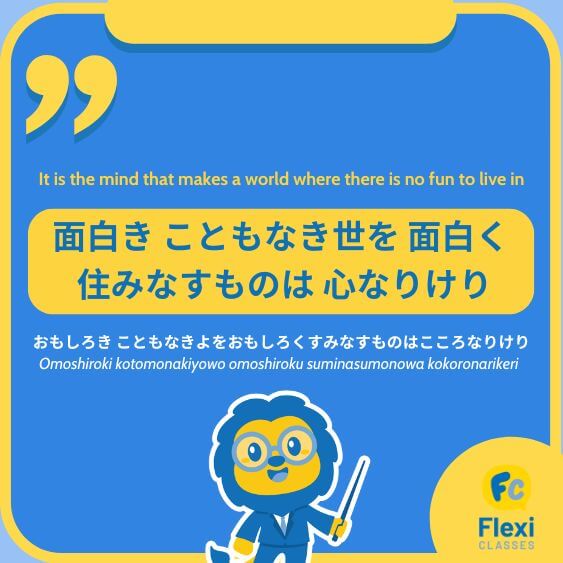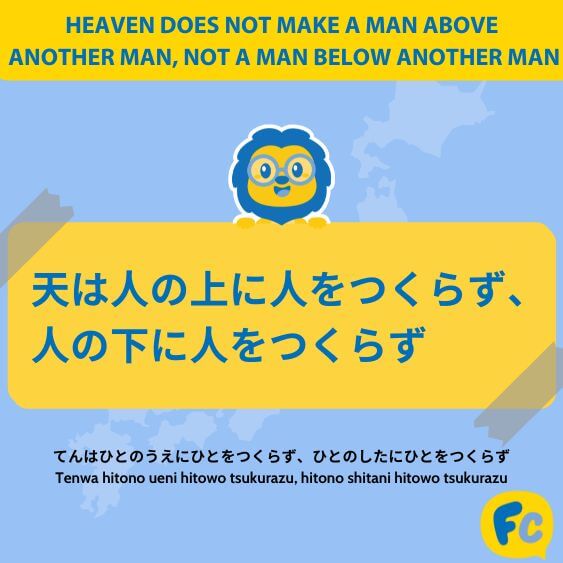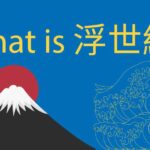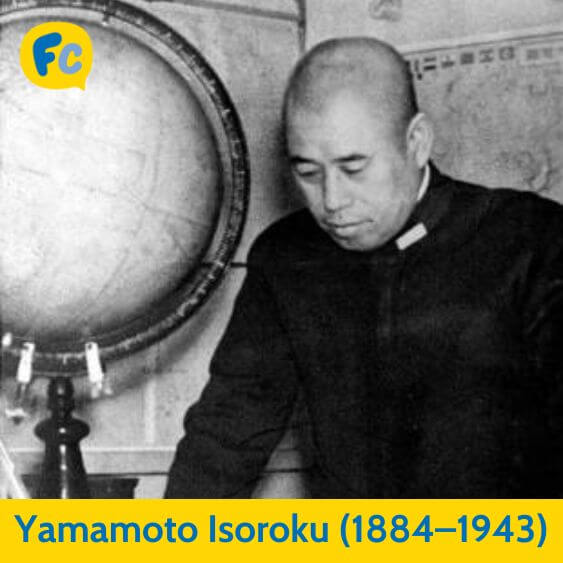Need a Boost? Here's Our Top 5 Japanese Inspirational Quotes
Empower Your Life: The Best Japanese Quotes for Inspiration
One of the joys of learning a new language is discovering its proverbs and memorable quotes.

These sayings—rich in meaning, rhythm, and easy recall—are powerful not only for sparking inspiration but also as valuable tools for language learning.
Famous quotes in any language often reflect the core values and unique perspectives of its culture.
In Japan, the words that have stood the test of time offer a glimpse into the country’s distinct way of thinking, revealing insights often hidden in day-to-day conversation. By delving into these phrases, you’ll not only feel inspired to learn but also uncover subtle layers of Japanese culture.
In this article, we’ll explore quotes from some of Japan’s most influential historical figures.
💡 If a particular quote resonates with you, try committing it to memory. Even if you don’t fully understand every word at first, your understanding will deepen over time—keeping you motivated as you progress in your studies.
Of course, there are many different quotes in Japanese, but this time we will introduce some that are particularly in line with the rhythm of Senryu 川柳 せんりゅう .
Senryu is a form of Japanese short poetry similar to haiku, consisting of three lines with a 5-7-5-7-7 syllable pattern. If you read it aloud, you will appreciate its rhythmic quality.
Japanese Inspirational Quotes || Uesugi Yozan
Japanese Inspirational Quotes || Takasugi Shinsaku
Japanese Inspirational Quotes || Sakamoto Ryoma
Japanese Inspirational Quotes || Fukuzawa Yukichi
Japanese Inspirational Quotes || Yamamoto Isoroku
Japanese Inspirational Quotes || FAQs
Japanese Inspirational Quotes || Uesugi Youzan
為せば成る、為さねば成らぬ。何事も 成らぬは人の 為さぬなりけり。
なせばなる、なさねばならぬ。なにごともならぬはひとのなさぬなりけり。naseba naru, nasaneba naranu. Nanigotomo naranu wa hito no nasanu narikeri.
If you do, you will succeed; if you don’t, you won’t. Nothing is accomplished unless man does it.
When it comes to Japanese quotes, one of the most well-known to many Japanese people is this one. In conversations, its shortened form 為せば成る なせばなる is often used.
This is a famous quote that is used as advice for those who think too much and do not take action.
This quote is from Uesugi Yozan (上杉鷹山 うえすぎようざん 1751–1822).
He was a famous Japanese daimyo, known for his remarkable leadership in the Yonezawa Domain 米沢藩 よねざわはん (current Yamagata Pref.) during the Edo period. Faced with financial ruin, he implemented drastic reforms to restore the region’s economy.
He promoted agriculture, reduced government expenses, and prioritized education and the welfare of his people. His leadership was characterized by humility and a deep sense of duty to his domain. He is often cited as a model of good governance in Japan.
Japanese Inspirational Quotes || Takasugi Shinsaku
面白き こともなき世を 面白く 住みなすものは 心なりけり
おもしろき こともなきよをおもしろくすみなすものはこころはなりけりOmoshiroki kotomonakiyowo omoshiroku suminasumonowa kokoronarikeri.
It is the mind that makes a world where there is no fun to live in.
This quote is from Takasugi Shinsaku (高杉晋作 たかすぎしんさく , 1839–1867). It means, “whether you find the world boring or not depends on how you think.”

He was a pivotal figure in Japan’s transition from the Edo period to the Meiji era.
A samurai from Choshu Domain 長州藩 ちょうしゅうはん , current Yamaguchi Pref., he played a crucial role in the overthrow of the Tokugawa shogunate and the restoration of imperial rule.
Takasugi is best known for forming the Kiheitai 奇兵隊 きへいたい , a revolutionary militia composed of both samurai and commoners, breaking with traditional class distinctions.
His bold leadership in several key battles helped pave the way for the Meiji Restoration.
Despite dying young at 27, his legacy remains as a basis of Japan’s modernization.

The Art of Stealth and Bushido || Samurai and Ninjas: Who Were They REALLY?
From Shadows to Swords: Uncovering the History of Ninjas and Samurai in Japan For non-Japanese folk, the terms samurai and ninja are very familiar, and we all have our own impression about who they were and what they looked like….
Japanese Inspirational Quotes || Sakamoto Ryouma
丸くとも 一かどあれや 人心 あまりまろきは ころびやすきぞ
まるくともひとかどあれやひとごころ あまりまろきは ころびやすきぞMarukutomo hitokadoareya hitogokoro amarimarokiwa korobiyasukizo.
The human heart, even if round, must have some pointy parts. If it’s too round, you’ll fall right over.
It means something like, “It is better to be meek or mild-mannered, but you must have something non-negotiable in your heart.” Don’t be a yes-man, because if you don’t have your own will properly, you will roll around like a round stone.
This is a quote from Sakamoto Ryouma (坂本龍馬 さかもとりょうま , 1836–1867). He was also a key figure in the movement toward the Meiji Restoration.
Born into a low-ranking samurai family in Tosa (土佐 とさ , current Kochi pref.), he became a visionary leader advocating for Japan’s transition from feudal rule to a modern, united nation. Ryoma helped negotiate the alliance between the Choshu and Satsuma domains, which played a crucial role in the Meiji Restoration.
He also promoted the creation of Japan’s first modern navy. Assassinated at 31, Ryoma is remembered as a national hero who shaped Japan’s path toward modernization.
What’s your favorite inspirational quote? Let us know in the comments below!
Japanese Inspirational Quotes || Fukuzawa Yukichi
天は人の上に人をつくらず、人の下に人をつくらず
てんはひとのうえにひとをつくらず、ひとのしたにひとをつくらず
Tenwa hitono ueni hitowo tsukurazu, hitono shitani hitowo tsukurazu.
Heaven does not make a man above another man, nor a man below another man.

This is a quote from Fukuzawa Yukichi (福沢諭吉[ふくざわゆきち],1835–1901). He was a prominent Japanese intellectual, educator, and reformer during the Meiji era.
He is best known for his efforts to promote Western ideas and education in Japan, helping the country modernize rapidly after centuries of isolation.
He also founded Keio University, one of Japan’s most prestigious institutions, and wrote influential works such as “An Encouragement of Learning” (学問のすすめ がくもんのすすめ ), advocating for independence, equality, and individual rights.
The quote is taken from the book. It is an exhortation that all human beings are equal at birth and must improve themselves through hard work and diligence, regardless of their status. His portrait appears on the 10,000 yen banknote as a symbol of his lasting impact.

What is Ukiyo-e 浮世絵? || The Story of Japan’s Most FAMOUS Artwork
Do you want to know more about Japan’s most famous work of art? What is so special about an image of a tsunami wave? Let’s answer all these questions and more!
Japanese Inspirational Quotes || Yamamoto Isoroku
やってみせ、言って聞かせて、させてみせ、褒めてやらねば 人は動かじ
やってみせ、いってきかせて、させてみせ、ほめてやらねば ひとはうごかじyattemise, ittekikasete, sasetemise, hometeyaraneba hitowaugokaji.
People will not move unless you show them, tell them, make them do it, and praise them.
This is a quote from Yamamoto Isoroku (山本五十六 やまもといそろく , 1884–1943). He was a prominent Japanese admiral during World War II and the mastermind behind the attack on Pearl Harbor in 1941.

As Commander-in-Chief of the Imperial Japanese Navy, Yamamoto initially opposed war with the United States, recognizing the industrial strength of America. However, once the conflict began, he led Japan’s naval forces with strategic brilliance.
Despite early victories, such as at Pearl Harbor, his forces ultimately faced defeats at the Battle of Midway. Yamamoto was killed in 1943 when his plane was shot down by U.S. forces. He remains a significant figure in Japanese military history.
His quote is still widely known among the Japanese today as the spirit of a boss who has subordinates.
That is all for this article. Did you find your favorite quote? Remember to read it out loud and experience its rhythm!
Japanese Inspirational Quotes || FAQs
What kind of quotes are popular in Japan?
Of course, all forms of quotes are popular, but Senryu’s rhythmic format is particularly popular because it is easy to remember.
What people’s quotes are popular?
Quotes from feudal lords from the Sengoku period to the Edo period and people involved in the Meiji Restoration are popular.
Of the five, who is the most famous to the Japanese?
Fukuzawa Yukichi is probably the most famous, as his portrait appears on banknotes.
What quotes do you use to encourage someone?
To encourage someone, “なせばなる” is widely used.
When is the quote by Yamamoto Isoroku used?
It is used in situations where it is necessary to move others, such as a supervisor with subordinates.
Want More From LTL?
WANT TO LEARN JAPANESE? Check out our online Japanese courses here.
We offer a 7-day free trial to all new students where you can study 24/7.
What about studying Japanese in Japan instead? We’ve got your back. Our Japanese courses in Tokyo can either be taken in small groups of no more than 5 students or individually for a more tailored experience.
We even offer incredible homestay experiences in Tokyo as well.
Come and be a part of this amazing community.









